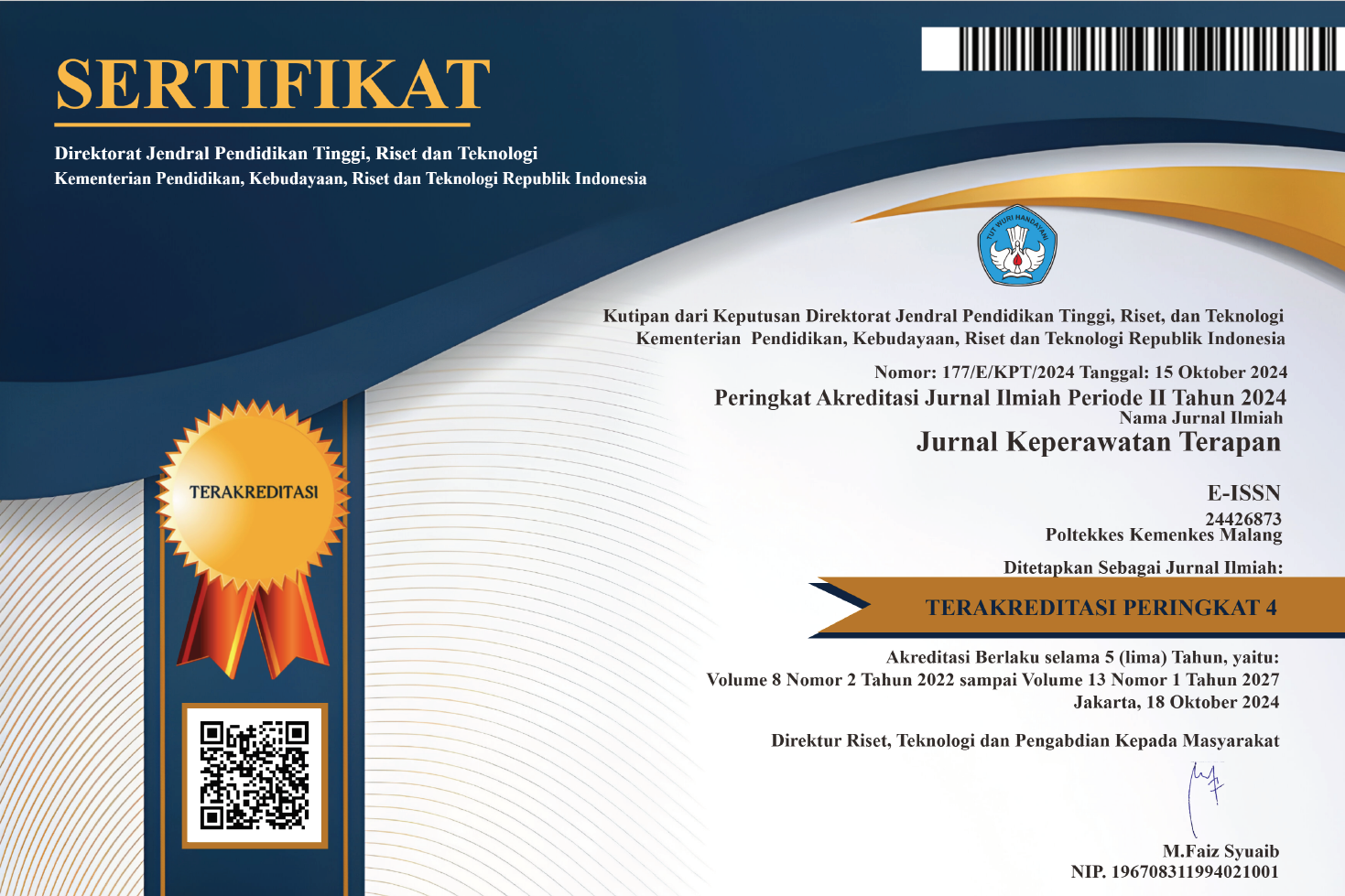Program Dukungan Organisasi dan Kesejahteraan yang Disesuaikan dengan Peran Kesehatan Dapat Meningkatkan Kepuasan Kerja dan Retensi di Klinik Kesehatan: Systematic Literature Review
DOI:
https://doi.org/10.31290/jkt.v11i1.5478Keywords:
Organizational support, Job satisfaction, Health workers, Retention, Welfare programs, Peer support system, Work fatigue, Work-life balance, Awareness training, Contextual interventions, Relational coordinationAbstract
This systematic literature review explores the impact of organizational support and wellness programs on job satisfaction and retention among healthcare workers. Using a PRISMA-guided approach, 12 peer-reviewed studies published between 2011 and 2025 were synthesized to identify effective interventions across multiple global contexts. Key strategies include peer support programs, mindfulness training, work-life balance initiatives, relational coordination, and context-specific leadership practices. Findings reveal that perceived organizational support (POS) plays a major role in improving emotional well-being, reducing burnout, and increasing workforce retention. Contextual adaptation of programs to meet the unique needs of various professional groups—such as ICU nurses, physicians, and frontline workers in low-income settings—was found to be more effective than generic approaches. Evidence underscores the importance of integrating structural, psychosocial, and leadership-driven interventions to maintain a motivated and resilient healthcare workforce. These insights provide actionable guidance for healthcare administrators and policymakers aiming to improve employee outcomes in high-demand clinical environments.
References
Amarsanaa J, Batsaikhan O, Jargalsaikhan B, Kubo T, Ghotbi N, Kayano R, et al. Impact of the COVID-19 pandemic on health emergency and disaster risk management systems: a scoping review of mental health support provided to health care workers. J Occup Health . 2025;
Amiri S, Mahmood N, Mustafa H, Javaid S, Khan MAB. Occupational Risk Factors for Burnout Syndrome Among Healthcare Professionals: A Global Systematic Review and Meta-Analysis. Int J Environ Res Public Health . 2024;
Berwick D, Nolan T, Whittington J. The triple aim: care, health, and cost. Health Aff . 2008;
Boamah SA, Laschinger H. The influence of areas of worklife fit and work-life interference on burnout and turnover intentions among new graduate nurses. J Nurs Manag . 2016;
Bussotti P, Lazzari D, et al. D’Alleva A, Coco A, Pelusi G, Gatti C. Impact of Work Motivation on Occupational Health in Healthcare Workers. Healthcare . 2023;
Cortese C. Job satisfaction of Italian nurses: an exploratory study. J Nurs Manag . 2007;
Duffield C, Roche M, Blay N, Stasa H. Nursing unit managers, staff retention and the work environment. J Clin Nurs . 2011;
Hudays A, Gary F, Voss JG, Arishi A, Alfar Z, Algodimi AM, et al. Factors Influencing Job Satisfaction among Mental Health Nurses: A Systematic Review. Healthcare . 2024;
Hunaiti Z. Empowering Healthcare Leaders: Coaching for Leadership Development. Encyclopedia . 2024;
Jiang L, Wider W, Tanucan JC, Bien JKC. Reforming China’s healthcare management in the wake of COVID-19: A psychological well-being perspective. J Infrastruct Policy Dev . 2023;
Keyser E, Weir LF, Valdez MM, Aden J, Matos RI. Extending Peer Support Across the Military Health System to Decrease Clinician Burnout. Mil Med . 2020;
Marino L, Curcio C, Marinaro I, Mosca M, Capone V. Emergenza da COVID-19 e benessere psico-sociale degli operatori sanitari: una revisione sistematica della letteratura. Psicologia Salute . 2021;
Merandi J, Liao NN, Lewe D, Morvay S, Stewart B, Catt C, et al. Deployment of a Second Victim Peer Support Program: A Replication Study. Pediatr Qual Saf . 2017;
Muñoz-Ortega S, Santamaría-Guayaquil D, Pluas-Borja J, Alvarado-Villa G, Sandoval V, Alvarado R, et al. Mental Health in Healthcare Workers Post-COVID-19: A Latin American Review and Insights into Personalized Management Strategies. J Pers Med . 2024;
Oosthuizen R, Coetzee M, Munro Z. Work-life balance, job satisfaction and turnover intention amongst information technology employees. South Afr Bus Rev . 2019;
Orr T, Cheung E, Saha M, Balogun T, Feng C, Farag M. Identifying risk factors for burnout-driven turnover in Canadian healthcare workers during the Covid-19 pandemic. BMC Health Serv Res . 2025;
Pai P, Olco? K, Allan J, Knezevic A, Mackay MT, Keevers L, et al. The SEED Wellness Model: A Workplace Approach to Address Wellbeing Needs of Healthcare Staff During Crisis and Beyond. Front Health Serv . 2022;
Roesner H, Neusius T, Strametz R, Mira J. Economic Value of Peer Support Program in German Hospitals. Int J Public Health . 2024;
Simms L, Ottman K, Griffith J, Knight MG, Norris L, Karakcheyeva V, et al. Psychosocial Peer Support to Address Mental Health and Burnout of Health Care Workers Affected by COVID-19: A Qualitative Evaluation. Int J Environ Res Public Health . 2023;
Stinglhamber F, Caesens G. Perceived Organizational Support. Essentials of Job Attitudes and Other Workplace Psychological Constructs . 2020;
Tolins ML, Rana JS, Lippert S, LeMaster C, Kimura YF, Sax D. Implementation and effectiveness of a physician-focused peer support program. PLoS One . 2023;












